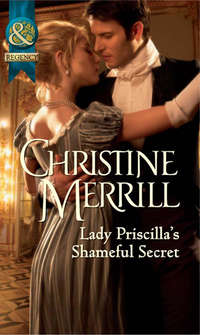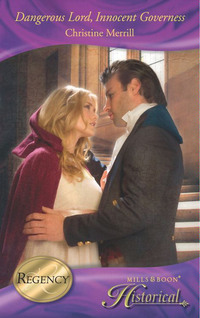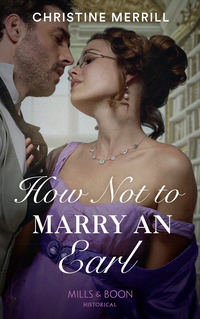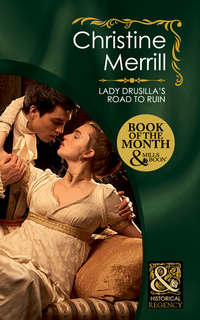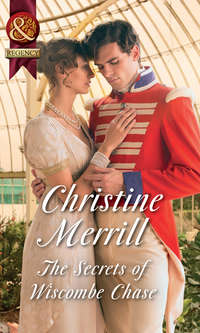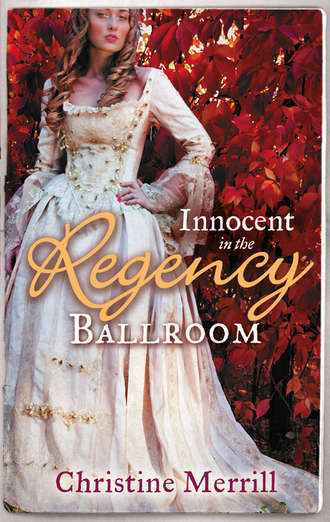
Полная версия
Innocent in the Regency Ballroom: Miss Winthorpe's Elopement / Dangerous Lord, Innocent Governess
She searched his plan for flaws and found none. After the initial shock of it wore off, of course. She had expected to choose her own dwelling, and that her circumstances might diminish after leaving her brother’s home. Why did she need a large house when a smaller one would suit her needs? But a manor …
‘Did you have a better solution?’ There was a touch of acid in the tone, but it was said mildly enough, considering.
He had taken pains to assure her that she would not lose her books. The least she could do was attempt to be co-operative. ‘No. No. That is most satisfactory.’
‘Satisfactory.’ His mouth quirked. ‘My holdings are not so rich as some, but I assure you that you will find them much more than satisfactory, once the improvements have been made.’
‘Of course.’
Silence fell again. She looked down at her hands and out at the passing countryside, trying to appear comfortable. So, she was to be lady of a manor in the country. What part of the country? She had forgotten to ask. It would make her appear even more ignorant, if she waited until they were packed and driving toward it, to inquire.
Of course, once she was back in London, it would be easy enough to find the information, without having to ask her husband.
Unless her failure to ask made her appear uninterested in her new spouse …
It was all becoming very confusing.
He cleared his throat. ‘This brother of yours. Is he a printer as well?’ There was a pause. ‘Because the servant mentioned that your father had been. And I thought, perhaps, family business …’ He trailed off, displaying none of the eloquence that she had expected from him. Apparently, he was as uncomfortable in his ignorance as she was with hers.
She smiled and looked back at him. ‘Yes. It is a family business. My father loved it dearly, and the books as well. And reading them, of course. He and Mother named us from the classics. My brother’s name is Hector. Father always said that education was a great equaliser.’
‘It is fortunate that a lack of education does not work in the same way. I was sent down from Oxford. It has had little effect on my status.’
They fell silent, again. She longed to ask why he had been forced to leave Oxford, but did not wish to seem impertinent. Was he like her brother had been, unimpressed by her desire for scholarship?
If so, he was biding his time before making the fact known. He’d had ample opportunity in the last few days to point out her foolishness over the translation. But he had said nothing yet.
‘Marriage is also a great equaliser,’ he said, to no one in particular.
Did he mean to refer to her sudden rise in society? If so, it was most unfair of him. She looked at him sharply. ‘Apparently so. For once we reach the bank, your fortune shall be the equal of mine.’
She noted the flash of surprise in his eyes, as though she had struck him. And she waited with some trepidation for the response.
Then his face cleared, and he laughed. And suddenly she was sharing the carriage with the man she thought she had married. ‘Touché. I expect I will hear similar sentiments once my friends get wind of our happy union, but I had not expected to hear them from my own wife. I recommend, madam, that you save some of that sharp tongue to respond to those that wish to offer you false compliments on your most fortunate marriage.’
People would talk.
Well, of course they would. Why had she not realised the fact? And they would talk in a way that they never would have had she married the drunken nobody she was seeking. She was a duchess.
She would be noticed. And people would laugh.
A hand touched her, and she jumped, and realised that she had forgotten she was not alone in the carriage. She looked up into the face of her new husband, and read the concern on his face.
‘Are you all right?’ He said it very deliberately, as though he expected her to misunderstand. ‘For a moment, you looked quite ill.’
‘It is nothing. We have been travelling for some time, and the trip …’ She let her words drift away, allowing him to make what he would of them.
‘Shall I tell the driver to stop?’
‘No, really. I will be fine.’
‘Perhaps if we switch seats—a change of direction might help.’ He took her hands and pulled her up off her bench, rising and pivoting gracefully in the tight space of the rocking carriage, to take her place and give her his. Then he pulled the shade on the window so that the moving scenery did not addle her gaze.
‘Thank you.’ She did still feel somewhat faint at the realisation of what she had done by marrying, and the impact it might have on the rest of her life. The distant and strange idea occurred to her that her husband was being most helpful and understanding about the whole thing. And that it might be nice to sit beside him, and rest her head against his shoulder for a time, until the world stopped spinning around her.
Which was a ludicrous idea. He was solicitous, but he had done nothing to make her think she was welcome to climb into his coat pocket. She looked at him again, even more beautiful in his concern for her, and closed her eyes against the realisation that they were a ridiculous study in contrast. A casual observer could not help but comment on it.
If he noticed the clamminess of her hand, which he still held, he did not comment, but reached out with his other hand as well, to rub some warmth back into the fingers. ‘We will be in the city soon. You will feel much better, I am sure, once we have had some refreshment and a change of clothes.’
She certainly hoped so, for she doubted that she could feel any worse.
Chapter Five
When she opened her eyes a while later, the carriage was pulling up in front of a row of fine houses, and he tapped on the door, waiting for the servants to open it and put down the step. Then he descended and offered his hand to her. ‘My dear?’
She reached out nervously to take it, while her mind raced to argue that she was in no way dear to him. The endearment was both inaccurate and unnecessary.
He saw the look in her eyes, and said, before she could speak, ‘It might go easier with the servants if we maintain a pretence of familiarity. They will obey you, in any case. They would be foolish not to. But all the same …’
She nodded. ‘Thank you, Adam.’ There. She had said his name.
A footman opened the door before them, and she entered on the arm of the duke, who greeted the butler with a curt, ‘Assemble the staff. Immediately.’
The man disappeared. He reappeared a short time later, accompanied by what Penny assumed must be the cook and the housekeeper, and, as she watched, an assortment of maids and footmen appeared from various entrances, lining up in an orderly row behind them.
She counted them. It must be a great house, as he had said, to need a staff so large. The home she had managed for her brother had made do with a staff of four. She reminded herself with some firmness that they were only servants and it did not do to show her fear of them.
The duke looked out over the small crowd assembled. ‘I have called you all out from below stairs for an announcement. On my recent trip north, things did not go quite as expected.’ He paused. ‘Actually, they went much better than I expected. I married.’
There was an audible gasp from the room, before the servants managed to regain control of their emotions.
‘May I present her Grace, the Duchess of Bellston—’
Before she could stop herself, she felt her knees begin to curtsy to the non-existent duchess, and her husband’s hand came out to lift her back to her feet.
‘—formerly, Miss Penelope Winthorpe. In celebration of this fact, you may all take the rest of the day off, to do as you will.’
There was an unexpected moment of tension.
‘With pay, of course,’ he added, and she could feel the staff relax again. ‘We will be dining out. You need do nothing on our behalf until breakfast.’
The gasp had turned to a murmur of excitement, as the staff realised their good fortune.
‘Three cheers for his Grace and the new lady of the house.’ The butler made an offer of ‘huzzah’ sound subdued and polite, but she accepted it with pleasure, as did her husband. ‘Thank you. And now, you are dismissed. Enjoy the rest of your day.’
As quickly as they had gathered, the staff evaporated.
She looked at him, waiting for some indication of what was to be done next.
He glanced around him, seeking inspiration. ‘Perhaps, a tour of the rooms would be in order. And then we will refresh ourselves, before a trip to your bankers.’
She nodded. ‘An excellent plan. Please, your Grace, lead the way.’
He flinched. ‘Remember, I am to be Adam to you. And you shall be?’ He cocked his head to the side. ‘Do you prefer Penelope, or are you a Penny?’
‘Penny.’
‘Then Penny it shall be, and whatever small endearments I can muster. Come, Penny.’ There was a hesitation, as though he was struggling with a foreign language. ‘Let me show you your home in London.’ He led her down a short corridor, to doors that led to a parlour, which was grand; and a dining room, grander still, with room to seat twenty people. At the back of the house were a study, and a morning room.
‘And this shall be yours.’ He gestured into the sitting room, hesitating in the doorway as though he were afraid to enter.
She could understand why. Whoever had decorated the room had been the most ladylike of ladies. The furniture was gilt and satin, with legs so delicately turned that she was almost afraid to sit on it. If she chose a second sandwich at tea, the settee might collapse from the additional weight. And the desk, which would need to hold her books and writing materials, looked as though it might faint dead away, if expected to hold anything more serious than social correspondence. The other tables in the room were too small for anything larger than a rosebud, which would have to be candy pink to match the horrible silk upon the walls. The total was so sweet it made her teeth ache to look at it.
She looked in disgust at the ormolu clock on the mantel, which was supported by tiny gold goats and overflown with cherubs.
In response to her glare, the clock chimed the quarter hour, if such a stubbornly unobtrusive bell could be considered a chime.
She looked to her husband and struggled to speak. The correct response should have been ‘thank you’. But it was quite beyond her. Eventually she said, ‘It is very—pretty.’
He nodded in apology. ‘We can find you furniture more suitable for work, and install additional shelves.’ He pointed to a rather foolish collection of porcelain shepherds that graced a corner of the room. ‘The bric-a-brac and nonsense can be dispensed with, if you wish.’
She looked dubiously around her.
‘The room itself is large enough, is it not?’
She tried to ignore the design, and focus on the dimensions. It was larger than the one she had been using. She nodded.
‘Very good, then. Redo it to suit yourself. I expected nothing less than that, from whatever woman I married. The rest of the house as well. If you see something that does not suit your tastes, it is well in your power to change it.’ He paused. ‘Except for my rooms, if you please. I would prefer that my bedroom and study remain as they are now.’
‘I think that is not an issue. For I have seen nothing so far that needs alteration, and have no desire to change everything for change’s sake.’ She neglected to point out that, since any cosmetic changes to the house were to be made with her money, it hardly seemed like a sensible use of the funds. ‘But this—’ she gestured into her new work room ‘—must go.’
‘Thank you.’ He seemed relieved as well. There had a been tension in his back that eased as she said the words, and she suspected the first marital hurdle had been jumped with ease. He made no effort to open the door to his study, and she suspected that he wished some areas of his life to remain unviewed as well as untouched.
Fair enough.
‘Let us go upstairs, then, and see the bedrooms.’ He led her up the wide marble staircase and turned to the left, opening a door for her. ‘These will be your rooms. There is a bedroom, a dressing room and a small room for your maid.’
None of which had been aired, she noted. The fireplace was cold and empty, and there was an uncomfortable chill in the unused room.
He noticed it as well, and wrinkled his nose. ‘Well. Hmm. It seems I spoke too soon, when sending the staff away for a day of celebration. I have left no one to light you a fire.’ He stepped across the room and opened a connecting door to his suite. There was a nervous pause. ‘And I see the servants have brought your things to my room. They assumed …’ He looked back at her, helplessly. ‘This is not as it appears.’
What upset him more? she wondered—that she might think he wished to bed her, or that the servants had assumed that he would? ‘It is all right. We will work things out between us, somehow.’
He nodded. ‘Do you wish to change? You are welcome to use my room. There is a basin of fresh water. And clean towels. I could send for a maid to help you … Oh, damn. If you need help, I suppose, I …’
She imagined the feel of his hands at her back, undoing buttons. ‘No. Thank you. I have become most adept at managing for myself, if there is no one to help me. If you will give me but a few minutes?’
He nodded and stepped aside, allowing her access to his room.
As the door shut behind her, she went hurriedly to the portmanteau on the floor and chose a fresh gown, struggling briefly with the closures at her back and slipping out of the travelling dress. Then she splashed some water from the basin on to her face, slipped into the new gown and used her brush to arrange her hair as best as was possible.
She could not help it, but glanced in the mirror behind her, examining the room. The man they had rescued from the street was obviously wealthy, but had seemed to have little care for health, his own cleanliness or welfare.
But the room behind her was orderly and immaculate. A sign of good housekeeping, perhaps. But there was more to it than that. The items in the room were expensive but well used and well cared for. The style and arrangement were elegant but simple. The whole suggested a well-ordered mind in repose. It gave her some level of comfort, knowing that her new husband’s private rooms looked as they did. This was what she had expected from the Duke of Bellston.
She opened the door to the wardrobe and examined the line of coats and neatly hung breeches and trousers, and the row of brightly polished boots. Expensive, but not gaudy. The man was well tailored, but not a dandy. If he had sunk his fortune because he was prone to excess, there was no indication of it here.
From behind her, he cleared his throat.
She whirled, shutting the wardrobe door behind her.
‘I am sorry. I knocked, but obviously you did not hear. Is there something you needed?’
That would cause her to snoop in his closet? He did not finish the sentence, allowing her a scrap of pride to hide her embarrassment. ‘No. I am quite finished, thank you.’
‘Then I would like to use my room as well, if you do not mind …’ There was a hint of challenge there, but his face showed bland inquiry.
‘I’ll just wait downstairs. In the sitting room?’
‘Thank you.’
She turned and exited the room before he could see the blush on her cheek, retracing her steps to her room on the first floor.
Adam waited for the click of the door latch before struggling out of his coat. It would be easier to call for his valet and admit that he had spoken in haste when releasing the staff. But he could manage to do for himself, if his wife had done so. And a day of leisure for the servants would unite them in support of the new mistress, and quell fears of upheaval and negative gossip. The minor inconvenience would be worth the gains in goodwill. He untied his cravat and tossed it aside, washing his face in the basin. Then he chose fresh linen, managing a sloppy knot that he hoped looked more Byronic than inept. He glanced behind him at the open door of the wardrobe.
She’d been searching his room. The thought should have annoyed him, but instead it made him smile. His new bride had a more-than-healthy curiosity. He walked over and pulled a coat off its hanger to replace his travelling clothes. Then she’d likely have been disappointed. There was nothing to see here. No skeletons. And not, fortunately, the bodies of any previous wives. Perhaps he should reassure her, lest she think him some sort of Bluebeard.
He glanced at her portmanteau on the floor beside the bed. Two could play at that game. Although what he expected to find, he was not sure.
He laid his hand on a spare gown, a clean chemise, a night rail, trimmed with embroidery and lace. It was all to be expected. Neatly folded and cared for, even though his wife travelled without a maidservant. The case was large and very heavy for only a few days’ travel. But that was very like a woman, was it not? To pack more than was absolutely necessary. His hand stopped short of the bottom of the bag.
Books. Homer. Ovid. A book of poetry, with a ribbon tucked between the pages so that the reader would not lose her place. Not the readings of a mind given to foolish fancy.
He replaced things carefully, the way he had found them, and turned to go to meet her in the sitting room. She was as studious as she claimed, if she could not manage a few days without some sort of reading material. And it was well that she had brought her own to his house. There were many books he fully intended to read, when he had leisure. But for the life of him, he could not think what they would be, and he certainly did not have anything to read in the London house that held any enjoyment. It probably made him look a bit odd, to be without a library but well stocked in Meissen shepherds. But there was little he could do to change that now.
He approached her room in trepidation. The door was closed. Should he knock or enter freely? It was one of many decisions they would have to make together. If they did not mean to live as most married couples, then boundaries of privacy would have to be strictly observed.
At last, he settled on doing both: he knocked and then opened the door, announcing himself and thinking it damn odd that he should need to do it in his own house.
His wife looked up from a book.
‘You have found something to read?’ he said, and wished he did not sound so surprised at the fact.
‘There were a stack of books on the shelf, here. Minerva novels. And Anne Radcliff, of course.’ She glanced around her. ‘Overblown and romanticised. They are most suited to the décor.’
‘They are not mine,’ he said, alarmed that such things even existed on the premises.
‘That is a great comfort. For I would wish to rethink our bargain were they yours.’ There was a twinkle in her eye as she said it. ‘But if you favour melodrama, I suspect that this afternoon’s meetings will be quite entertaining.’
And she was correct in what she said, for the trip to his wife’s bank was most diverting. He was not familiar with the location, which was far from Bond Street, nor did the men working there know him. But it was obvious that they knew his wife and held her in respect. She was ushered into a private office before she even needed to speak her request.
When her bankers entered the room, she wasted no time on introductions, but straight away announced that she had married, and that all business matters must be turned over, post haste, to her new husband.
He could not help but enjoy the look of shock on the faces of the bankers. There was a moment of stunned silence, before the men sought to resist, arguing that the union had been most impulsive and possibly unwise. They eyed him suspiciously, and hinted at the danger of fortune hunters where such a large sum was involved. Was she sure that she was making the correct decision? Had she consulted her brother in the matter?
Adam watched as his new wife grew very still, listening in what appeared to be respectful silence. Although there were no outward signs, he suspected the look of patience she radiated was a sham. And at last, when they enquired if she had obtained her brother’s permission to wed, her cool exterior evaporated.
‘Gentlemen, I am of age, and would not have needed my brother’s permission if the decision to take a husband had taken a year instead of a day. In any case, it is too late now, for I cannot very well send the man away, explaining that our marriage was just a passing fancy on my part. Nor do I wish to.
‘May I introduce my husband, and manager of all my finances from here on, Adam Felkirk, Duke of Bellston.’
He did his best to maintain an unaffected visage, although the desire was strong to laugh aloud at the sight of the two men, near to apoplexy, bowing and calling him ‘your Grace’, and offering tea, whisky or anything he might desire, hoping to erase the words ‘fortune hunter’ from the previous conversation.
‘No, thank you. I merely wish to see the account book that holds the recent transactions on my wife’s inheritance.’
The men looked terrified now, but the account book appeared, along with a cup of tea.
Adam glanced down the row of figures, shock mingling with relief. His financial problems were solved, for there was more than enough to effect repairs on the house, and tide the property over until a more favourable season. He was equally glad that he had known nothing of the numbers involved when he had wed the girl. Considering his financial condition, he feared he’d have lost all shame, fallen at her feet, and begged her to wed him, based on what he saw before him.
He looked at the line of monthly withdrawals, increasing in amount as time passed. ‘Do you have any regular expenses that need to be met, my dear?’
‘Not really. My brother allows me a small allowance, and I take care not to exceed it. I doubt I’ll need more than twenty or thirty pounds a month.’
Which was far less than the expenditures on the account. He tapped the paper with his fingertip and glanced up at the bankers. Where was the money going? To the only man with access to the account.
Until now, that is.
Hector had not touched the principal, as of yet. But Penny had been correct in her fears. If measures were not taken, there would be no fortune left to hunt.
He smiled, as condescending and patronising as he could manage. ‘You gentlemen were wise to be concerned with the prudence of my wife’s decision. But you need concern yourself no longer. Please prepare a draft, in this amount …’ he scribbled a number in the book ‘… and send it to my bankers. I will give you the direction. The rest can remain here, as long as the investments continue to be as profitable as they have been. But under no circumstances is anyone to have access to the account other than myself.’ He glanced at Penelope. ‘Or my wife, of course. She has my permission to do as she pleases in the matter. Should she send any bills to you, please honour them immediately.’
He shot a sidelong glance at Penelope, and watched her eyes go bright and her mouth make a tiny ‘O’ of surprise.
He smiled. ‘Is that to your satisfaction, dear?’
‘Very much so.’ The smile on her face was softer than it had been, with none of the hesitance that he had seen in her from the first day. Her body relaxed enough so that her arm brushed the sleeve of his jacket.
She trusted him. At least, for now.
And it cleared the doubts in his own heart, that he had married her for her money. Her fortune could stay separate from his, and he would leave her the control of it. With the look she was giving him, he felt almost heroic.
He was quite enjoying it.
After the success at the bankers, Penny had hoped to feel more confidence when confronting her brother. But as she entered the house, she could feel all the old fears reforming in her. Living here had felt a prison, as much as a haven. And her brother’s continual reminders that this was all she would ever know, since no one would want her, had reinforced the iron bars around her.


